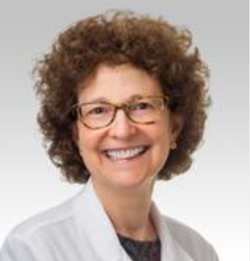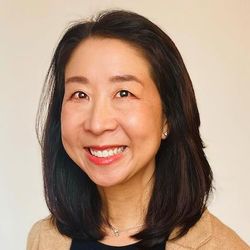
OR WAIT null SECS
Adam B. Hill, MD: Improving Public Mental Health Care
The physician and memoir author shares his personal and professional perspective on what's needed to fix a broken system of care.
Adam B. Hill, MD
The story Adam B. Hill, MD, shared in his memoir Long Walk Out of the Woods: A Physician’s Story of Addiction, Depression, Hope, and Recorvery came to a natural end. But the author’s journey to recovery and mental wellness continue.
In the final segment of a discussion with HCPLive® on mental illness, addiction, and stigmas surrounding physician burnout, Hill, a pediatric oncologist, discusses the most common misconceptions surrounding caregivers in need of care, what mental health education needs to become, and hopes for his own future of recovery.
HCPLive: As a physician, what kind of hurdles did you have to clear when coming to terms with your struggle? What kind of misconceptions were you hearing from people?
Hill: I heard 2 really great questions in there. Being somebody who's intellectually trained in the scientific pathways, pharmacology, and treatment options for mental health is one thing. Being intellectually aware of that is something that I can claim, but having lived through it emotionally—when you're an addict, the denial and isolation, the secret life that I was living isn't one of intellectualism. It's of emotional distress.
I think that's a very real, lived human experience for somebody who's suffering and struggling. It doesn't matter how smart you are, how trained you are, how proficient you are. It's not about what you know, if you have book smarts. Having that awareness of what you're going through—I still struggled mightily at navigating that piece. I had to rely on many other people: my wife, my family, my friends, and professional treatment programs to help pull me out of that. No amount of book knowledge or credibility from what I had learned could do that.
And so, none of it prepared me for actually living through it. I think the same, obviously, is true about any sort of illness that somebody goes through.
The second part of your question about navigating some of those obstacles on the back end: well, I also wasn't prepared for that. I know when I sought help and treatment initially, I had gone to a PCP and was actually kind of discouraged away from seeking health and treatment, because I would have to put it on licensing forms. They asked me, "Do you really want to do this?" and I write about this in the book.
That was one of the sparks, one of the impetus for writing this story: that those conversations happen every day in professional circles, where we're asking colleagues to screen people against potential interventions that may show up on their CVs, resumes, or job performances. And that happened to me.
Fortunately for me, I said yes to treatment because I wanted to feel better and reclaim my life, and then I just took each obstacle on as they came. That's what I usually caution and teach when people are struggling and come to me. I'll say, "Seek help, seek treatment first, and then we'll figure the rest out. And you'll be in a much better space to be able to do so, because you'll be healthier and happier, and you can have your life back. You can't worry about those things right now."
HCPLive: It's seems like education needs to play a huge role as increased mental illness is addressed as a public health crisis. We need to change the community-based approach of informing people as young as they're able to understand it, and especially something like suicidality and depression can affect adolescents so significantly in the US. Can you speak a little bit to the significance better depression screening and management in schools? What do we need to do there?
Hill: I really appreciate this question, because, the closing line of my book is really a callback to that I wrote this book for my children. I usually get misty eyed when I talk about this in my lectures—my last slide is a picture of my wife and my kids. And I wrote this because I want them to grow up in a culture, in a community that loves and embraces them for who they are, no matter what their story is. So I do think it starts with not just education and a sense of how we've commonly though, talked, and spread information about these conditions, but really shifting the conversation to a normalization of these conditions—that mental health is health and physical health conditions are no different.
Everybody has a story and each story deserves compassionate or empathic ear. I have seen so much hope with this in younger generations, in movements and pushes, and now we're having professional athletes, royal family members, and all these people talking more openly about their mental health. I think we can do it.
I hope, concurrently with that shift and normalization conversation will also really invoke an infrastructure and resources for mental health in the way that we have for cancer treatment, the way that we have for progressive heart failure treatment—that we really will invest in proactive mental health in our local communities, and connect people.
The scary truth is the vast majority of Americans don't have access to reliable, affordable mental health services, and despite pushes in the Affordable Care Act and the Mental Health Parity Act, there's still just, you know, deserts of spaces that aren't served to the people who really need them.
And the last thing I'll say along those lines is that my father was a community mental health therapist for 40 years. He built programs and served our small town in southern Indiana. And I saw cutback, layoffs, and budget cuts over and over and over again, and how desperately he wanted to make a difference in this space. And he did, but at the same time, I saw how difficult it was to actually get people to help they need.
So, hopefully we can really invest as a culture.
HCPLive: Let's say 5 years from now, you've continued to make progress. What do you hope to have reached by then? What it is your goal?
Hill: It's a great question. We have our third child on the way here in a few months. I hope, first and foremost, to live one day at a time in recovery. I don't take any of that for granted. I hope to continue to be the best father to my children and the best husband that I can be to my wife. And I hope to continue to make people proud, and to carry a message for the recovery, and attract people to that message, that it'll help other people.
I hope this message in my recovery will reach people when they need it. Because I learned early in the recovery process that the only way that I stay sober and that I stay healthy and happy is to give it away to other people. So, what that means in terms of where my life, travels, or professional jobs will take me, I don't know. But, I'm grateful for where it's taken me so far.
Related Content:


